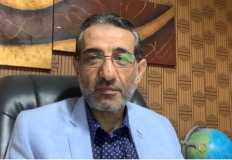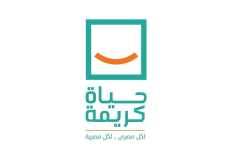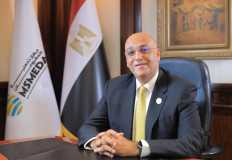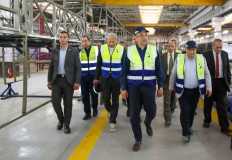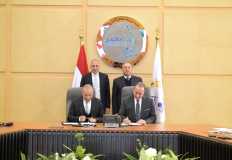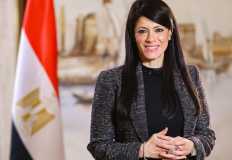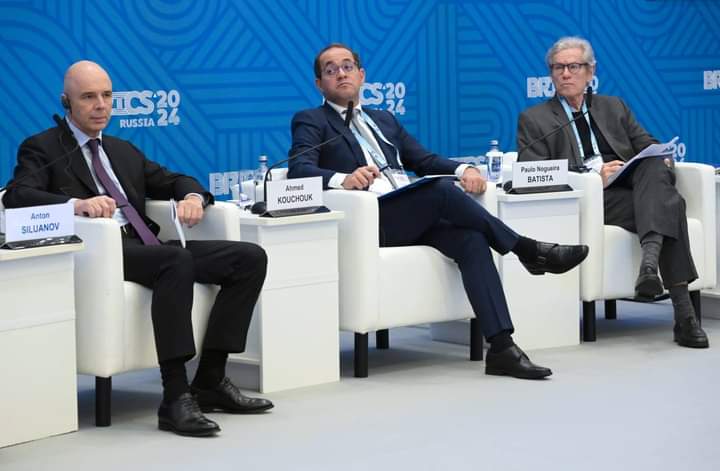
Minister of Finance Ahmed Kouchouk confirmed that the BRICS group can significantly influence the restructuring of the global economic landscape to benefit emerging and developing nations, explaining that we anticipate reforms to the international monetary system that establish a more balanced, comprehensive, and equitable economic framework for emerging markets.
In his first ministerial-level
participation in BRICS meetings in Moscow during the session on 'Improving the
Global Monetary and Financial System', Kouchouk emphasized the need for
emerging economies to have a stronger voice and greater representation in
managing global affairs through international financial institutions. He
pointed out that the BRICS serves as a vital platform for fostering regional
integration among Africa, the Middle East, and Asia, as well as creating new
opportunities for investment, development, and trade.
He added that we seek stronger
cooperation with all our BRICS partners to achieve economic stability, growth,
and development for our countries and peoples, taking into account that the New
Development Bank is a powerful tool for the BRICS group in financing
sustainable development projects in member countries.
The Minister added that we have outlined
our economic vision to stimulate economic growth in Egypt and address regional
challenges, affirming that Egypt aspires to be a regional center for
investment, exports, and the production of clean energy sources, especially
green hydrogen. We aim to attract more private investment in productive
sectors, export activities, infrastructure, and technology. By implementing
structural reforms, we are creating a more business-friendly environment to
foster private sector growth and boost productivity rates.
He pointed out that we aim to
gradually reduce the size and indicators of government external debt and work
to convert part of the debt into investments. We are keen to diversify the
sources, tools, markets, and currencies of financing to reduce the ratio and
burden of debt-to-GDP. We also seek to increase the volume and proportion of
concessional multilateral financing from development banks, international
institutions, and bilateral partners. We also seek to make optimal use of available
sustainable financing tools.
Kouchouk called for the strengthening of 'blended finance' models to drive cross-border public-private partnership efforts, noting that we seek to direct development financing towards infrastructure development and meeting social needs, especially in health and education.
